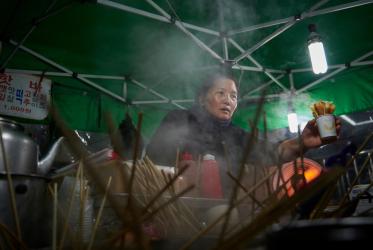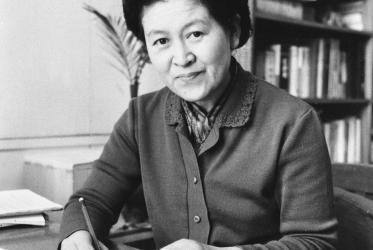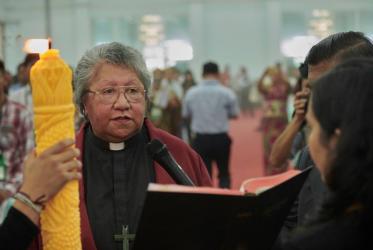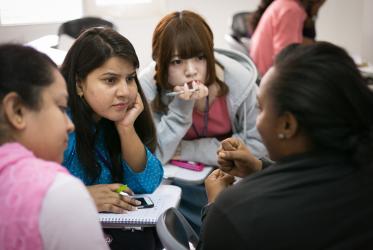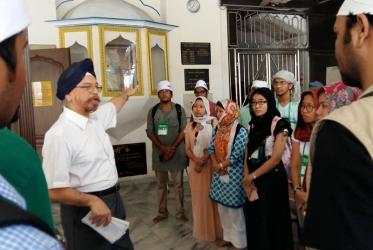Displaying 1 - 18 of 18
"Light of Peace" book now available in Korean
06 January 2021
Hanbeet Rhee: “Young people can be bridges”
17 October 2019
A tribute to former WCC president for the Asia-Pacific
27 April 2018
Determined to make a difference
18 April 2018
Young ecumenists address new realities of global movement
25 February 2016
Joint efforts to fight violence against children
18 June 2015


